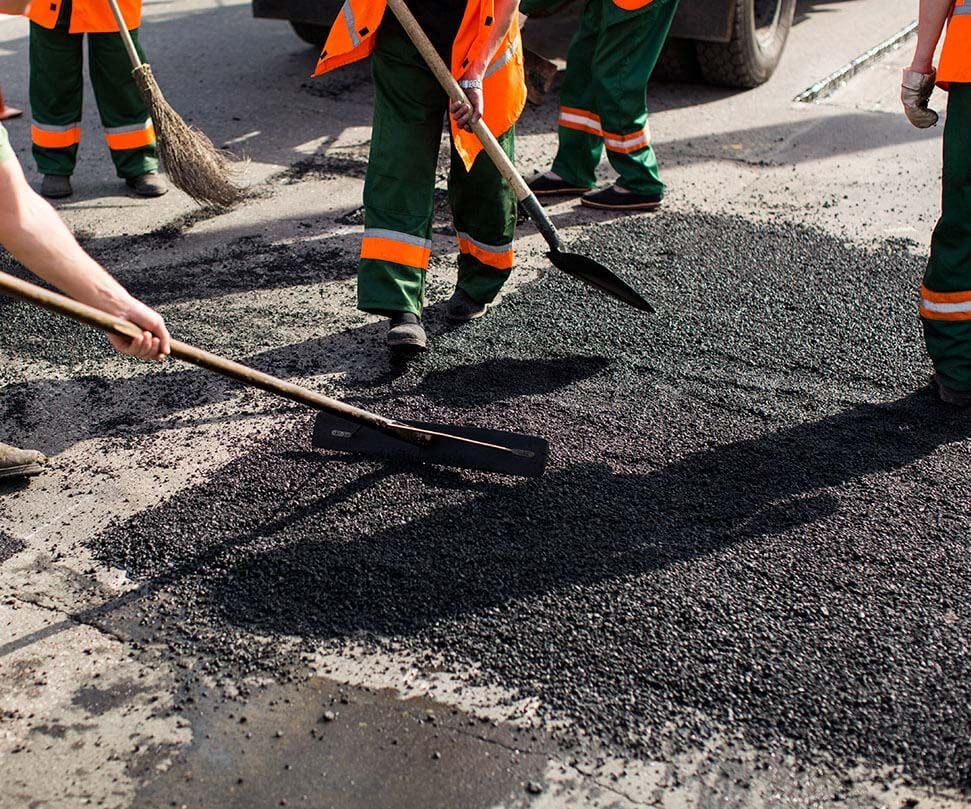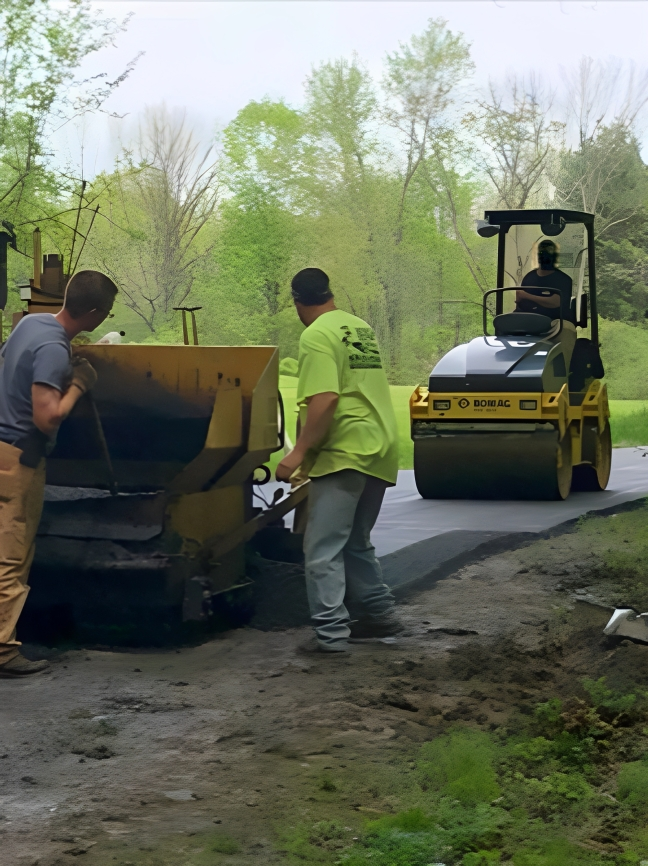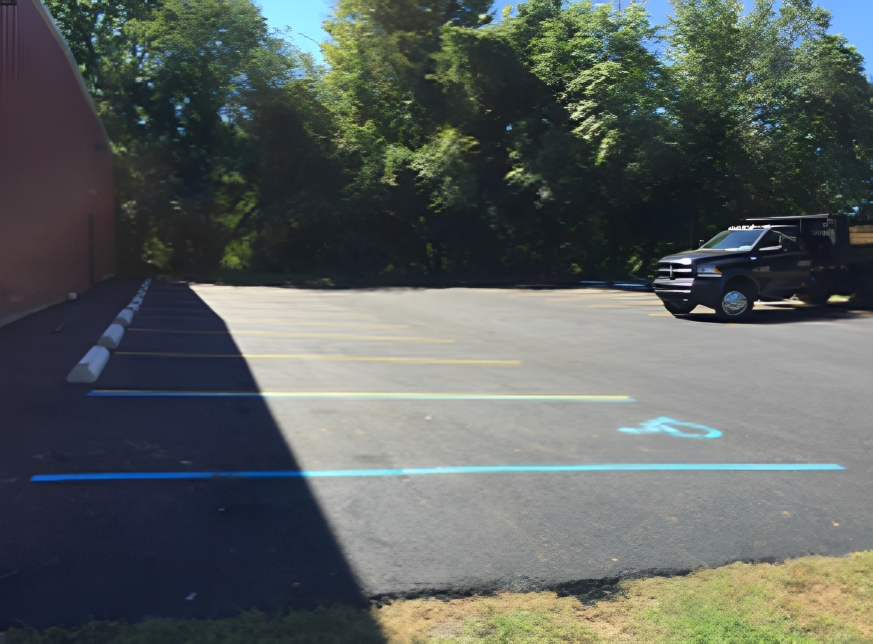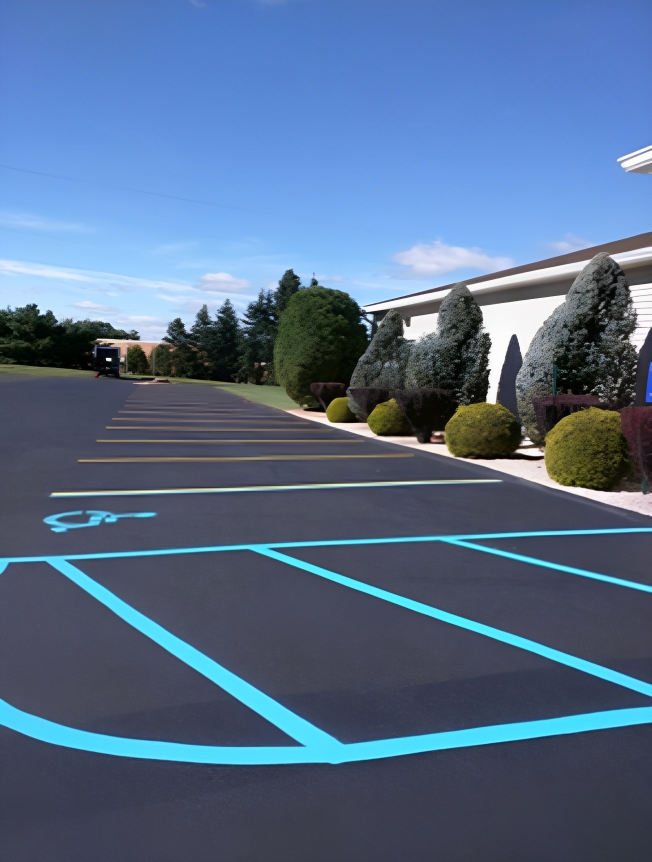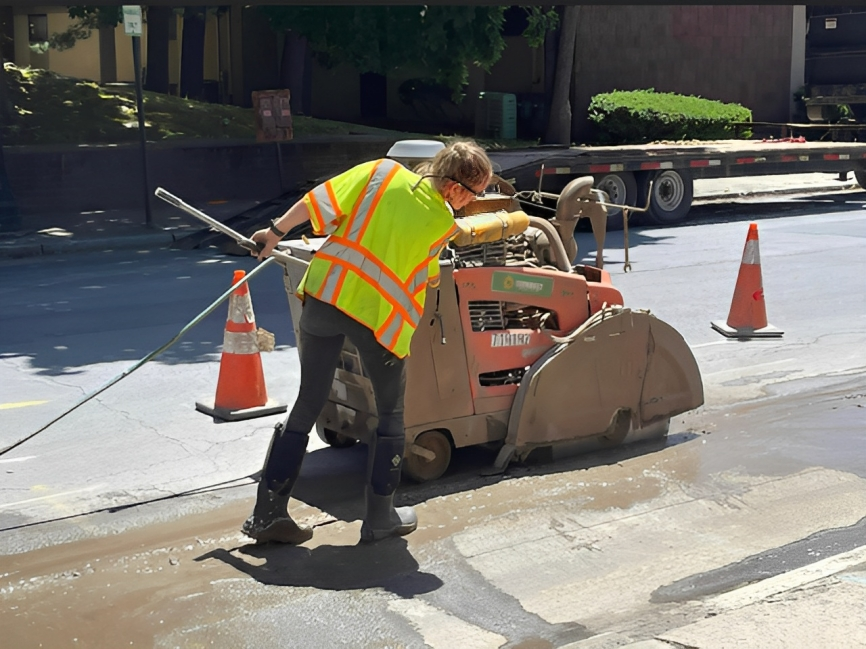All About Asphalt Recycling

Asphalt recycling is transforming the construction industry, merging development with environmental care. This method repurposes old asphalt, significantly cutting waste and saving resources. But what makes asphalt recycling stand out? And why is it becoming a preferred choice worldwide? This blog unpacks asphalt recycling, highlighting its process, advantages, and its impact on sustainable building. Discover how this approach is changing the game by reducing the environmental footprint of construction projects.
What is Asphalt Recycling?
Asphalt recycling transforms old, used asphalt into viable material for new projects. This involves taking reclaimed asphalt pavement (RAP), breaking it down, and repurposing it for fresh construction. It's a key strategy in reducing the reliance on new materials, slashing waste, and supporting sustainability efforts.
This recycling practice not only conserves resources but also lessens the environmental burden of construction activities. It demonstrates a practical approach to sustainability, by lowering the demand for untouched raw materials and reducing emissions from the manufacturing process.
How Does Asphalt Recycling Work?
Asphalt recycling turns old pavement into new by a clear, step-by-step process:
- Collection: First, workers gather old asphalt from roads or parking lots due for upgrades or removal.
- Crushing: This old asphalt is crushed into smaller bits, clearing out any unwanted debris along the way.
- Mixing: The crushed material, now called reclaimed asphalt pavement (RAP), is mixed with new asphalt and sometimes additional materials to ready it for reuse.
- Testing: To make sure the recycled asphalt meets the right quality standards, it’s thoroughly tested. This step ensures the material is strong and fit for its new purpose.
- Application: The final product is then used in new construction projects. Depending on its composition, recycled asphalt can serve various roles, from a base layer to the top surface of a road.
What Are the Benefits of Asphalt Recycling?
Asphalt recycling is more than just a sustainable choice; it brings a host of advantages to the table:
- Environmental Benefits: Top on the list, recycling asphalt drastically reduces the quarrying, mining, and oil consumption associated with new asphalt production. It cuts down on greenhouse gas emissions and conserves natural resources, aligning with global sustainability efforts.
- Economic Advantages: Recycling asphalt saves money. It reduces material and transportation costs, as recycled materials are often sourced locally and require less processing than creating new asphalt from scratch. This cost-effectiveness extends from the construction companies to taxpayers.
- Quality and Durability: Recycled asphalt can match or even surpass the quality of new asphalt. Modern recycling techniques ensure that the recycled material retains its durability and longevity, making it suitable for a variety of construction projects.
- Versatility: Recycled asphalt isn't just for paving roads. It's also used in parking lots, bike paths, and as a base material for constructing buildings. Its flexibility in application demonstrates its value across the construction sector.
- Reduced Construction Time: Projects using recycled asphalt can often be completed faster. Since the material is usually available on-site or nearby, the time and logistics involved in sourcing and transporting new materials are significantly reduced.
Can Recycled Asphalt Provide the Same Quality as New?
A common question surrounding asphalt recycling is whether the recycled product matches the quality of newly manufactured asphalt. The answer is yes, with conditions.
Recycled vs. New Asphalt Quality
- Composition and Performance: Recycled asphalt, when properly processed and mixed, can achieve a composition very similar to that of new asphalt. Advances in recycling technology ensure that the performance, durability, and lifespan of recycled asphalt rival those of its new counterpart.
- Adaptability to Projects: Recycled asphalt's quality makes it suitable for a wide range of projects, from high-traffic highways to residential driveways. Its adaptability is testament to its reliability and performance standards.
- Quality Control Measures: Rigorous testing and quality control are crucial in maintaining the high standard of recycled asphalt. By adhering to strict specifications, the recycled product delivers consistent, reliable performance across applications.
Ensuring High-Quality Recycled Asphalt
- Advanced Processing Techniques: Utilizing modern machinery and techniques in the recycling process is key to eliminating impurities and ensuring the material's quality.
- Mix Design Optimization: Tailoring the mix design to suit specific project requirements allows for the optimal performance of recycled asphalt, ensuring it meets or exceeds the standards of new asphalt.
What Are the Challenges of Asphalt Recycling?
While asphalt recycling offers numerous benefits, it's not without its challenges. Addressing these hurdles is essential for maximizing its potential:
- Variability in Material Quality: The quality of reclaimed asphalt pavement (RAP) can vary significantly, depending on its source and condition. This variability requires sophisticated sorting and processing techniques to ensure a uniform end product.
- Technological and Equipment Requirements: High-quality asphalt recycling demands advanced technology and specialized equipment. Upfront costs and the need for skilled operators can be barriers for some companies.
- Regulatory and Specification Limitations: Regulations and specifications for recycled asphalt can differ widely between regions. Navigating these rules and ensuring compliance can complicate recycling efforts.
- Public Perception and Industry Acceptance: Despite proven benefits, skepticism still exists among some stakeholders regarding the performance and longevity of recycled asphalt. Overcoming this bias is crucial for broader adoption.
- Logistical Challenges: Collecting, transporting, and storing RAP efficiently poses logistical challenges. Effective management practices are needed to minimize costs and environmental impact.
How is Recycled Asphalt Used in New Projects?
Recycled asphalt has found its way into a variety of construction applications, proving its versatility and value:
- Road Construction and Repair: Perhaps the most common use, recycled asphalt is used as a base layer or surface layer for new roads and highways. Its durability makes it ideal for withstanding heavy traffic.
- Parking Lots and Driveways: Recycled asphalt provides a sturdy, cost-effective solution for parking lots and residential driveways, blending performance with aesthetics.
- Pathways and Bike Lanes: Given its smooth finish and environmental benefits, recycled asphalt is increasingly used for pedestrian pathways and bike lanes, promoting sustainable urban development.
- Cold Patching Material: For quick repairs, recycled asphalt can be used as cold patching material, fixing potholes and cracks with minimal downtime.
- New Asphalt Mixtures: Recycled asphalt is often incorporated into new asphalt mixtures, enhancing their quality and reducing the need for virgin materials.
Conclusion
Asphalt recycling is not just a trend; it's a sustainable shift in the construction industry, blending economic efficiency with environmental responsibility. From roads and driveways to urban pathways, the use of recycled asphalt demonstrates its durability, versatility, and commitment to reducing our ecological footprint. Embracing asphalt recycling means investing in a future where construction and sustainability go hand in hand, ensuring our infrastructural needs are met without compromising the health of our planet.
Call to Action (CTA)
If you're inspired by the potential of asphalt recycling and are looking for top-notch services that align with these values, look no further than NEPA Asphalt. Offering a range of services from asphalt contracting and block topping to parking lot services and driveway contracting, NEPA Asphalt ensures quality and sustainability in every project. With additional offerings like asphalt resurfacing, utility contracting, and snow removal, our comprehensive solutions cater to all your needs. Serving Jefferson Township, Scranton, and beyond, NEPA Asphalt is your partner in building a greener future. Contact us today to learn how we can make your next project not only successful but also sustainable.
Frequently Asked Questions
-
Can Recycled Asphalt Provide the Same Quality as New?
Yes, with modern recycling techniques, recycled asphalt can match or even exceed the quality of new asphalt, proving suitable for various applications including high-traffic areas.
-
What Are the Challenges of Asphalt Recycling?
Challenges include material quality variability, the need for advanced technology, regulatory hurdles, public perception, and logistical complexities. Addressing these challenges is crucial for the success of recycling efforts.
-
How Can I Get Involved in Asphalt Recycling?
Supporting companies that prioritize sustainable practices, like NEPA Asphalt, is a great start. Advocacy and choosing recycled materials for your construction projects can also make a difference.
-
Is Recycled Asphalt Safe for All Types of Construction?
Recycled asphalt is versatile and safe for many types of construction, including roads, parking lots, and residential projects, thanks to stringent quality control measures.
-
How Much Cost Savings Can Be Achieved Through Asphalt Recycling?
Recycling can significantly reduce material and transportation costs, with savings varying based on project size and scope. The economic benefits extend from construction companies to taxpayers.
Our Services
Contact Info
Phone: (570) 351-1568
Jefferson Township, PA
Business Hours:
- Mon - Fri
- -
- Sat - Sun
- Appointment Only
Emergency Services Available




